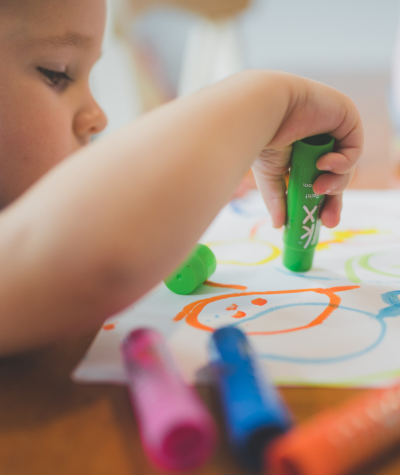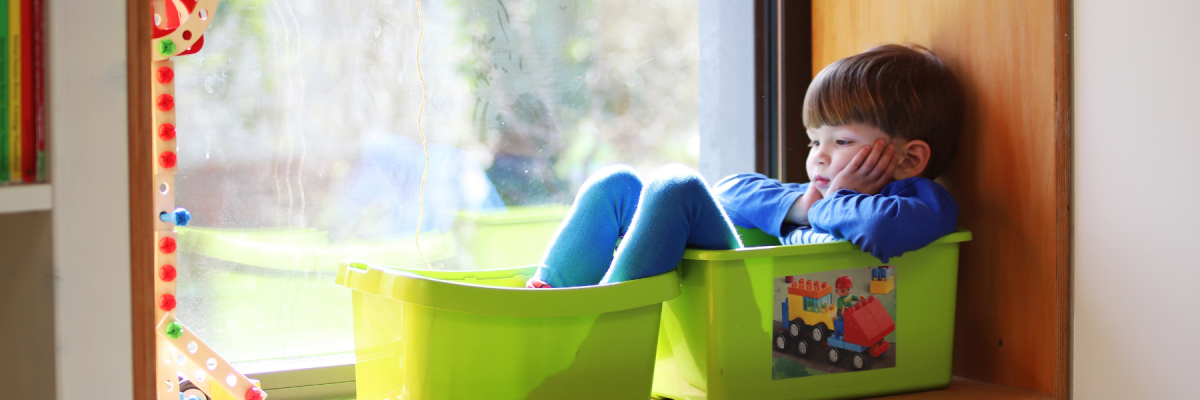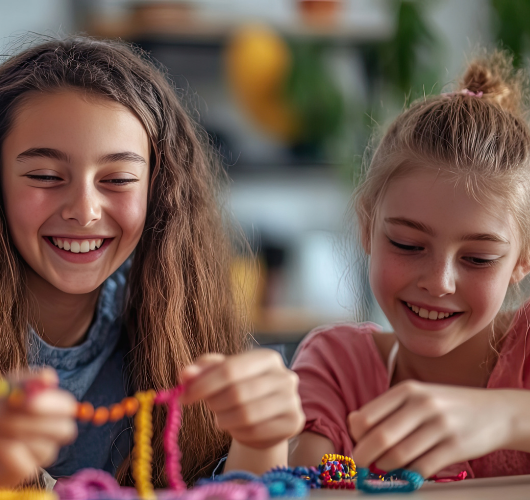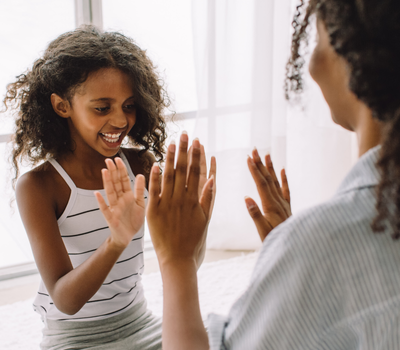Games (that don’t require anything!)
I Spy is a guessing game where one player (the spy or it) chooses an object within sight and announces to the other players that “I spy with my little eye something beginning with...” naming the first letter of the object or “I spy with my little eye something… naming the color of the object. The other player(s) attempt to guess the object.
20 Questions is a guessing game where one player thinks of a person, place, or thing, and others try to guess it by asking up to 20 yes/no questions.
A Storytelling Game is a collaborative activity where players work to create and advance a storyline together. An example might be sentence by sentence or paragraph by paragraph.
The Alphabet Game is a simple game where players take turns naming words or objects that start with consecutive letters of the alphabet, starting with “A” and progressing to “Z”, often with a chosen category.
Pass the Rhyme is a game where the first player comes up with a word to start, then the players take turns saying a word that rhymes with the starting word. If no one can come up with a rhyming word, the next player creates a new starting word.
Rhyme Time Storytelling Start a story with a simple sentence that ends in a rhyming word, such as “Once upon a time, there was a cat who wore a hat” Then, take turns adding to the story with rhyming sentences. This game helps children practice rhyming in context and boosts their creative storytelling skills.
Charades is a game where players take turns acting out words or phrases without speaking, while the other players try to guess what it is.
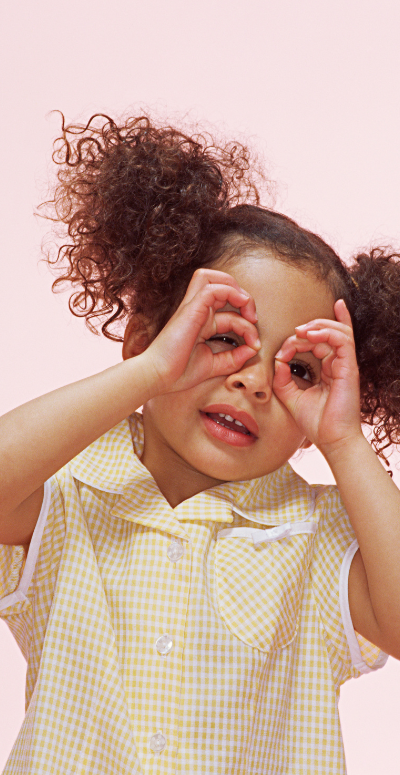
Questions to Get Your Child Talking
- What’s your favorite thing to do outside/inside?
- If you could have any superpower, what would it be?
- What’s the silliest thing you can do?
- What’s your favorite animal and why?
- If you could travel anywhere, where would you go?
- What’s your favorite color and why?
- What’s your favorite food?
- If you could be any character, who would it be?
- What’s the funniest thing that happened today?
- What do you want to be when you grow up?
- What is your favorite place in the world?
- What makes you happy?
- If you opened a store, what would you sell?
- If you could be any animal, what kind would you be?
- What would you do if you made the rules at home?
- What is the ickiest thing you’ve ever eaten?
- If you could have any superpower, what would you have?
- What is your favorite thing to do?
- How would you describe a perfect day for yourself?
- What do you think you are good at?
- If you had to live with a cartoon character, who would you pick?
- How would you describe your family?
- What is something you’d like to learn how to do?
- What would you do with $1,000?
- Which holiday do you like the most and why?
- What is something that makes you laugh?
- Why is the sky blue?
- What made you smile today?
Waiting Room Scavenger Hunt
- Healthcare Provider
- Books
- Clock
- Clipboard
- Scale
- Mask
- Stethoscope
- Computer
- Rubber Gloves
- Thermometer
- First Aid Kit
- Hand Sanitizer
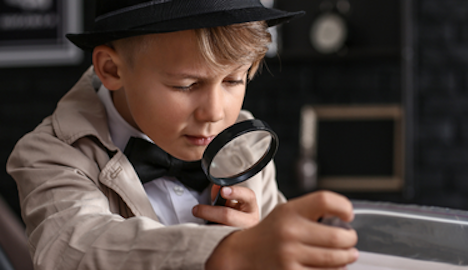

Calm Down Techniques
Deep Breathing: Inhale slowly and deeply through your nose, hold for a few seconds, and exhale slowly through your mouth.
Box Breathing: Inhale for a count of four, hold for four, exhale for four, and hold for four.
Engage Your Senses:
- 5-4-3-2-1 Method: Acknowledge 5 things you can see, 4 things you can touch, 3 things you can hear, 2 things you can smell, and 1 thing you can taste.
- Grounding: Focus on your immediate surroundings, paying attention to the details you can see, hear, and feel.
- Quick Meditation: Close your eyes and focus on your breath, or simply observe your thoughts and feelings without judgment.
- Progressive Muscle Relaxation: Tense and then release each muscle group, starting with your toes and working your way up to your head.
- Visualization: Imagine a peaceful scene or a place that makes you feel calm.
- Smile: A simple smile can help calm your nerves.
- Think of Something Funny: Laughter can be a great stress reliever.
Learn Sign Language
-
Hello & Goodbye

Hello

Goodbye
-
Please & Thank You

Please

Thank You
-
I Don’t Know & Help
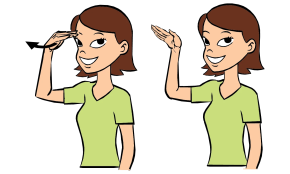
I Don't Know

Help
-
Bus & School

Bus

School
-
House & Friend

House

Friend
-
Mommy & Daddy

Mommy
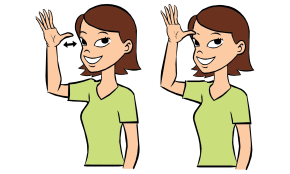
Daddy
-
Brother & Sister

Brother

Sister
-
Dog & Cat

Dog

Cat
-
Eat & Drink

Eat
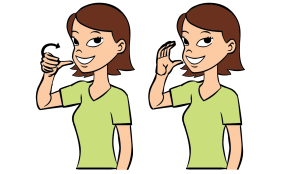
Drink
-
Baby & Link to Learn More

Baby
For even more sign language basics, go to https://babysignlanguage.com/

Hello

Goodbye

Please

Thank You

I Don't Know

Help

Bus

School

House

Friend

Mommy

Daddy

Brother

Sister

Dog

Cat

Eat

Drink

Baby
For even more sign language basics, go to https://babysignlanguage.com/

Hello

Goodbye

Hello

Goodbye

Please

Thank You

Please

Thank You

I Don't Know

Help

I Don't Know

Help

Bus

School

Bus

School

House

Friend

House

Friend

Mommy

Daddy

Mommy

Daddy

Brother

Sister

Brother

Sister

Dog

Cat

Dog

Cat

Eat

Drink

Eat

Drink

Baby
For even more sign language basics, go to https://babysignlanguage.com/

Baby
For even more sign language basics, go to https://babysignlanguage.com/
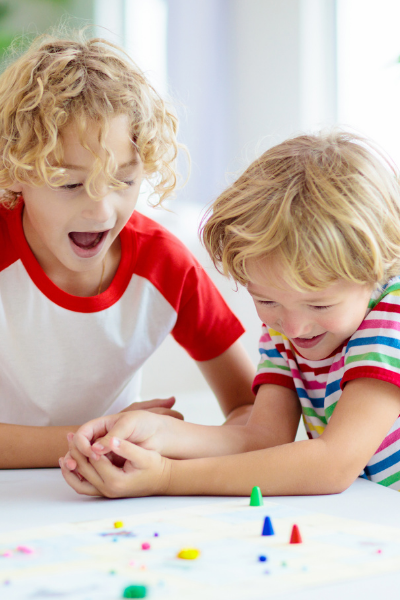
Planning Ahead: Busy Bags
What are busy bags? A busy bag is a bag (Ziploc baggies, pencil cases, even little mint tins…) that contains simple activities that your child can complete independently. Ideally, you have multiple busy bags your child can choose from during independent/waiting times.
You can make your own busy bags using: puzzles, printable activities, favorite books, paper punchers, index cards and stickers, highlighters, small toys (plastic animals or characters), travel games (Memory or Cards), flash cards, play dough, clipboard, paper, and pen, cardboard tube and pom poms, finger puppets, paper clips and cardboard, small pieces of fabric with different textures…
Busy Bags can be made from things you prepare ahead of time. Here are a few ideas:
- simple or packaged crafts
- DIY board games
- dice games
- “surprise” items you see at the dollar store that you know your child will like to tinker with
- beads and pipe cleaners to make bracelets or to sort beads onto
- use popsicle sticks to make simple shapes
- matching games
- do a dot markers and free printable dot marker pages
You can Google hundreds of ideas for busy bags; here are a few tried and true favorites:
Art Bags: Include crayons, markers, colored pencils, stickers, small notepads or small coloring books…
Mini Puzzles: For a busy bag, you want a puzzle that is slightly challenging but achievable on its own…
Dry Erase Bag: Include dry erase activity books or boards and dry erase markers…
Manipulatives: Pompoms and muffin tins for sorting, small sets of legos or blocks, cars and toilet paper tubes, magnet letters, pipe cleaners and straw pieces, string and beads (hint: tie one bead tightly at the end of the string so the beads don’t fall off)…
Felt Activities: Cut out ingredients for pizza and a circle for dough, a variety of fish and a blue rectangle for the ocean, tree branches and leaves…
Sorting and Patterns: Buttons, applesauce caps, sorting bears, rocks, coins, shapes, stickers, jelly beans, plastic eggs…
